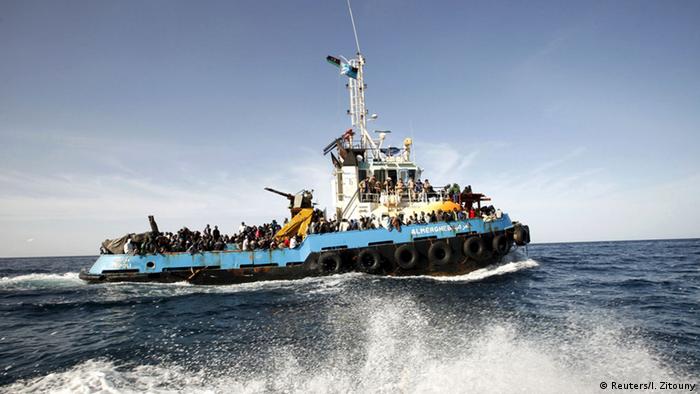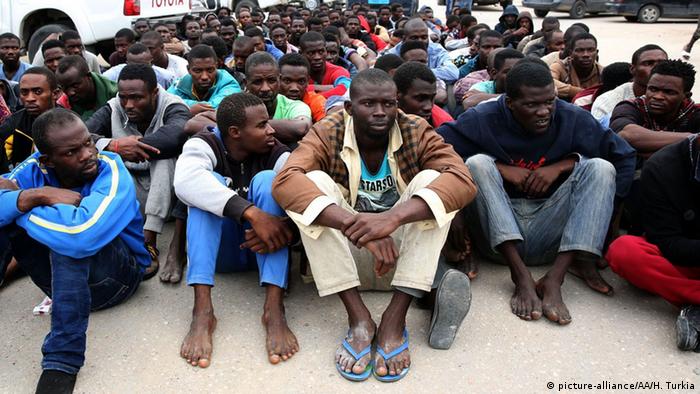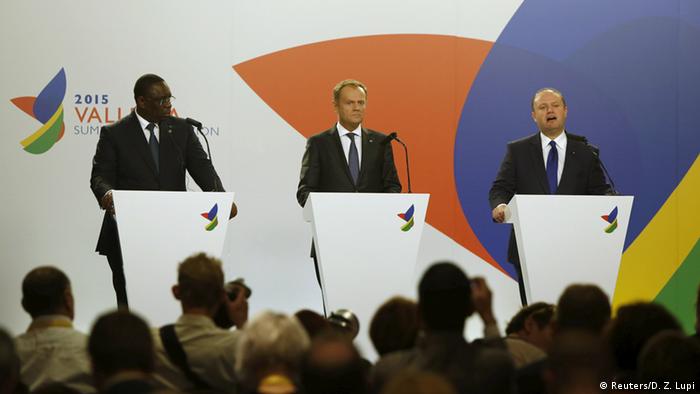Refugees
Criticism of the migration policy of the EU
The EU plans to combat agreements with African governments to escape causes. These partnerships are controversial. Actually, it needs also other initiatives – as the result of a meeting in Berlin.

“If I stay in my home country, I’ll die to 100 percent. In the case of a flight to Europe, the probability is only 50 percent.” In this formula, a young African refugee make out of it. At a conference on German and European migration policy, he explains to the experts its a very personal point of view. Invited to participate in this exchange, the opposition party in the German Bundestag “the Left”.
Background the so-called are
Khartoum and Rabat processes, in which the EU has regulated the migration cooperation with countries in East and West Africa – and the announced
Migration partnerships in the EU: For a successful suppression of Migration towards Europe, there should be funds for a Non-cooperation sanctions to trade restrictions. Critics speak of a copy of the highly controversial
EU-Turkey agreement, the return it provides for the refugees.
Clear answers there are not
The Central question of the event: flight and migration movements out of Africa, control all of Europe? Yes and no – the answer from Stephan Dünnwald of the organization “Bayerischer Flüchtlingsrat”, has coordinated a study on the subject: “After the experiences we have in the Rabat process (for Western Africa, n. d. Red.) have made, the sometimes more and sometimes less works well,” says an Interview with the activist at the DW. So countries such as Mali or Senegal, earned much more money, the transferred migrants from abroad back home, as with the EU funds for Migration control, says the small forest. “Here is a very good offer from the EU would have to come to Mali would say: Ok, we limit now the Migration, we co-operate with the EU.”

Refugees on the way to Europe. For these men, their escape in Libya ends, you will be picked up and detained (archive photo)
Another point of criticism: dealing with human rights. German media had last month
controversial agreement with the German development organization GIZ (Gesellschaft für Internationale Zusammenarbeit) reported: With the help of EU money they should operate, among other things, border security projects in Sudan, and Sudanese security forces equip.
Controversial cooperation with the Sudan
Marina Peter of the “Sudan and South Sudan Forum” knows the Region well. They criticized the project: “Unfortunately, we have to conclude that the human rights, which are propagated in Germany, are increasingly being sacrificed in favor of a collaboration for alleged security and stability.”
The authoritarian Regime in Eritrea and Egypt, as EU project partner in the conversation. Also, the Marina Peter sees critical: “Because you have to ask the question: How can we enforce more human rights and Good Governance in these countries, if it remains silent precisely to these operations? We do not hear from Germany and the EU to denounce such a thing.”
“EU throws its values on the heap”
The looks of the development policy spokesman of the party “the Left”,
Niema Movassat, similar to: “what is Remarkable is that you would now like to work with a Sudanese Regime very closely together, which has been previously rejected due to human rights violations. And now this Regime is suddenly not good enough,” said Movassat. He has recently demanded from the Federal government for information about the German cooperation with so-called rogue States in the Horn of Africa.
“The EU is throwing what you always defined as their values – Dignity, human rights, justice, and freedom – on the heap in cooperation with these dictatorial regimes, because they are expected to stop refugees,” said Movassat. Development funds would be misused and misappropriated.

Find the common solutions for dealing with refugees: Senegal’s President Macky Sall, the EU Council Chairman Donald Tusk and Malta’s Prime Minister Joseph Muscat (left) at the EU-Africa summit in Malta by the end of 2015
African leaders under pressure
The Malian human rights activist Ousmane Diarra adds to the debate about the African perspective: “We, the civil society in the countries of sub-Saharan Africa, found that there was a real pressure on African politicians to agree to all of the processes and provisions of the EU”, he says Interview at the DW.
The EU were to enter into Long agreements with the Maghreb countries such as Libya, Mauritania, Morocco, or Tunisia, which should make up for the EU, as the the gendarmes, Diarra. This cooperation causes since 2004, a lot of dramas – such as in the Spanish exclaves of Ceuta and Melilla. Agreements between individual countries in Europe and Africa are, therefore, not desirable, says Diarra. Rather, there is a need for a “well-covered, a global Convention between the European and the African Union”.